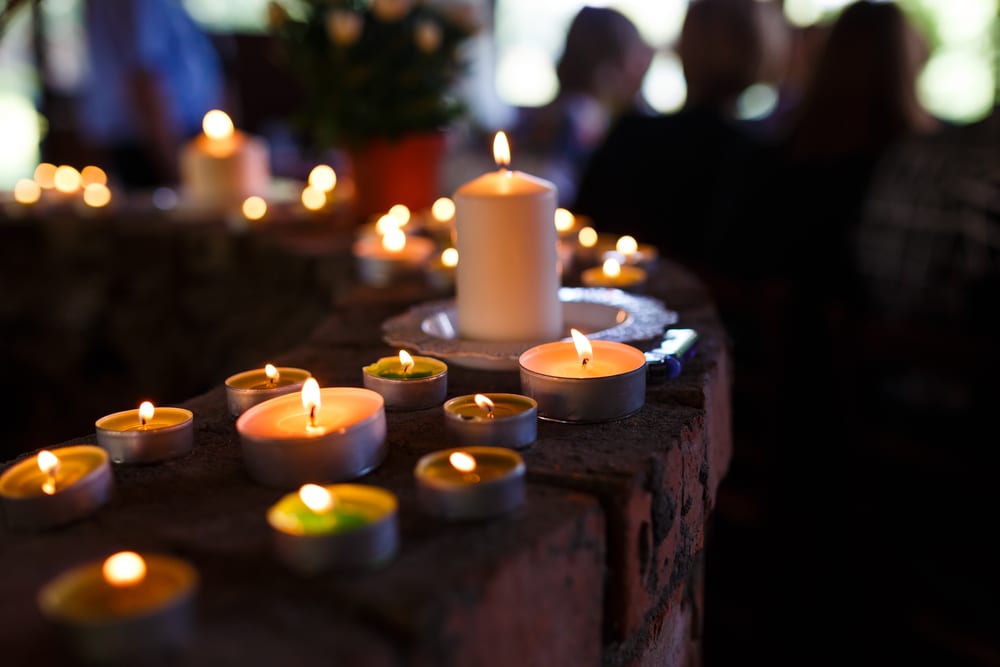Multicultural Funerals in Australia
No matter what your ethnicity or faith, death is one of life’s unavoidable events. While we may not have much of a choice about how or when we die, we can choose how we depart the world with a funeral ceremony that reflects our faith and personal beliefs. From the reflective practices of Judaism to the Hindu belief in reincarnation, here’s how different communities around Australia farewell their loved ones.
Hinduism
According to the Hindu faith, when a person passes away, their soul will be reborn. The Mahabharata (one of the main Hindu texts) says that “just as a man discards worn out clothes and puts on new clothes, the soul discards worn out bodies and wears new ones.” Hindu custom requires the body to be cremated, usually a day or two after the death. The family may also drop water from the Ganges River, which is available in Australia, into the deceased’s mouth before cremation. In India, the ashes will be scattered into the Ganges following the funeral. In Australia, they are usually taken to the nearest ocean or lake.
Buddhism
Buddhists believe death is a natural and inevitable part of the lifecycle. When a person is dying, friends and family might crowd around to reflect on their good deeds in life, hoping to have sway over their reincarnation. According to the Last Rites of Amitabha, the body can’t be moved, touched or disturbed once they pass away because the soul doesn’t leave the body immediately after death. The body must be completely cold before it can be washed and prepared for burial or cremation.
At a Buddhist funeral, mourners wear white instead of black. Cremation is more popular among Buddhists and may require monks to be present to chant when the body is being cremated at the ceremony. Family members can also lead the chanting. Once cremated, loved ones can collect the ashes and do with them what they feel is best. This may involve scattering them or retaining them in an urn.
Judaism
When a Jewish person passes away, the family’s first contact is usually the Chevra Kadisha, an organisation of Jewish people who make sure the deceased person’s body is prepared for burial according to religious tradition. It’s customary for the body to be guarded until someone from the Chevra Kadisha arrives. Judaism traditionally prohibits cremations and autopsies because the desecration of a body is looked down upon.
A ritual known as ’Taharah’ is carried out, which involves washing the body and dressing it in a plain cloth wrapped around the body so they may appear in front of God as an equal. Funerals are large and culminate in a burial. Stones are also laid on the grave instead of flowers to represent the permanence of memory and legacy. Following the ceremony, the family will enter “Shiva”, which is one week of mourning.
Islam
There are four stages to a Muslim burial — called the ‘Janaazeh’. First is the ‘Ghusl’, the washing. The deceased person’s body is taken to a mosque when they pass away. Here, the body is washed by family and members of the mosque. From there it is covered in plain shrouds; three pieces for men and five for women. This second stage is called “Kafan”.
The third stage is ‘Salah Janazah’, the prayer. This is done at the funeral. The final stage is the “Dafnul Mayit”, the burial. The body is taken from the mosque to the cemetery in a coffin, with the shrouds tied at the head and feet. At the grave the body is taken out of the coffin and laid on its right-side facing Mecca.
Multicultural Funerals in Western Australia
Hetherington Funerals have extensive experience arranging funeral ceremonies for a wide variety of cultures and faiths. For more information or advice, please contact us on (08) 9459 2846, submit an enquiry on our contact page or look at our funeral services here.

